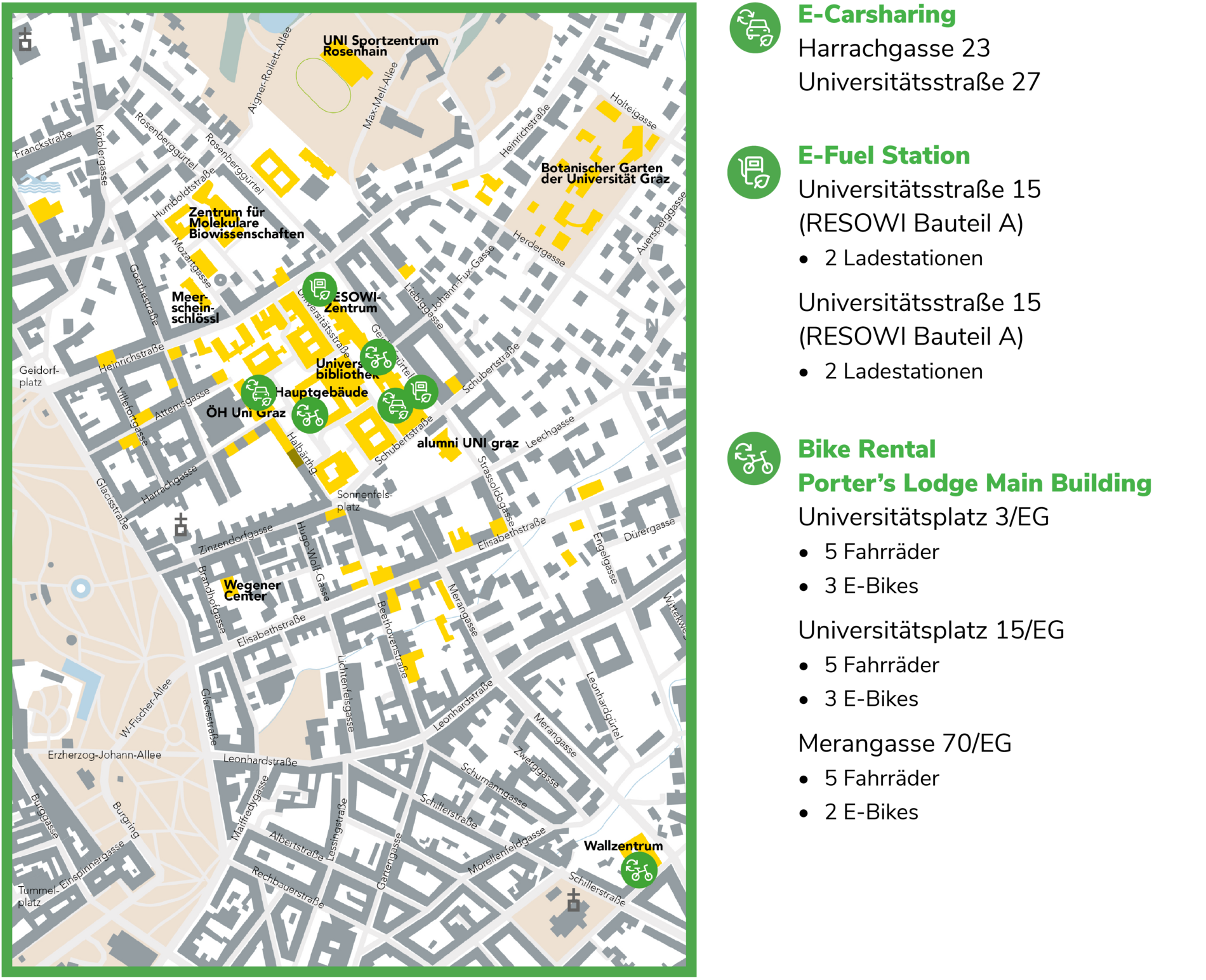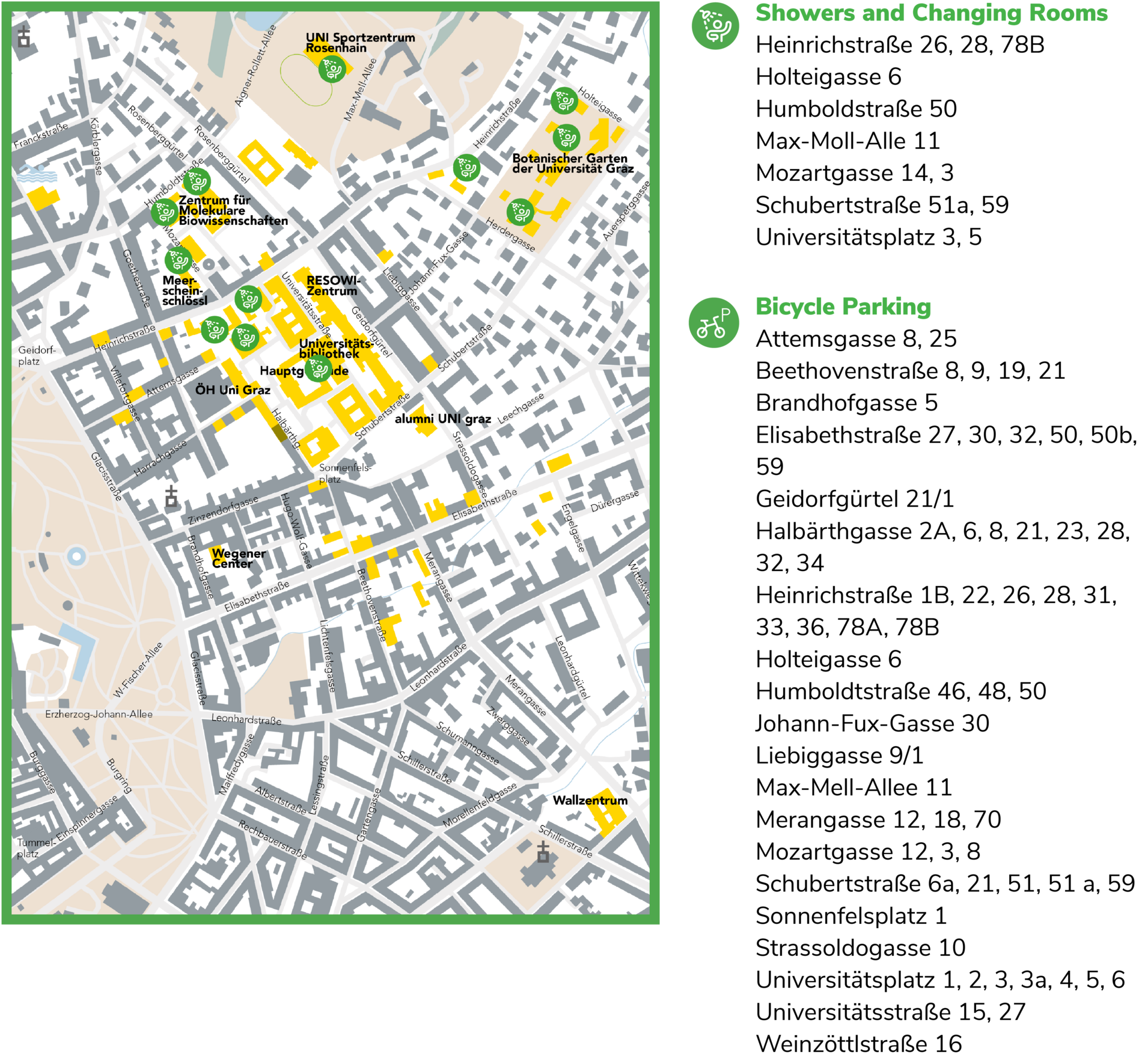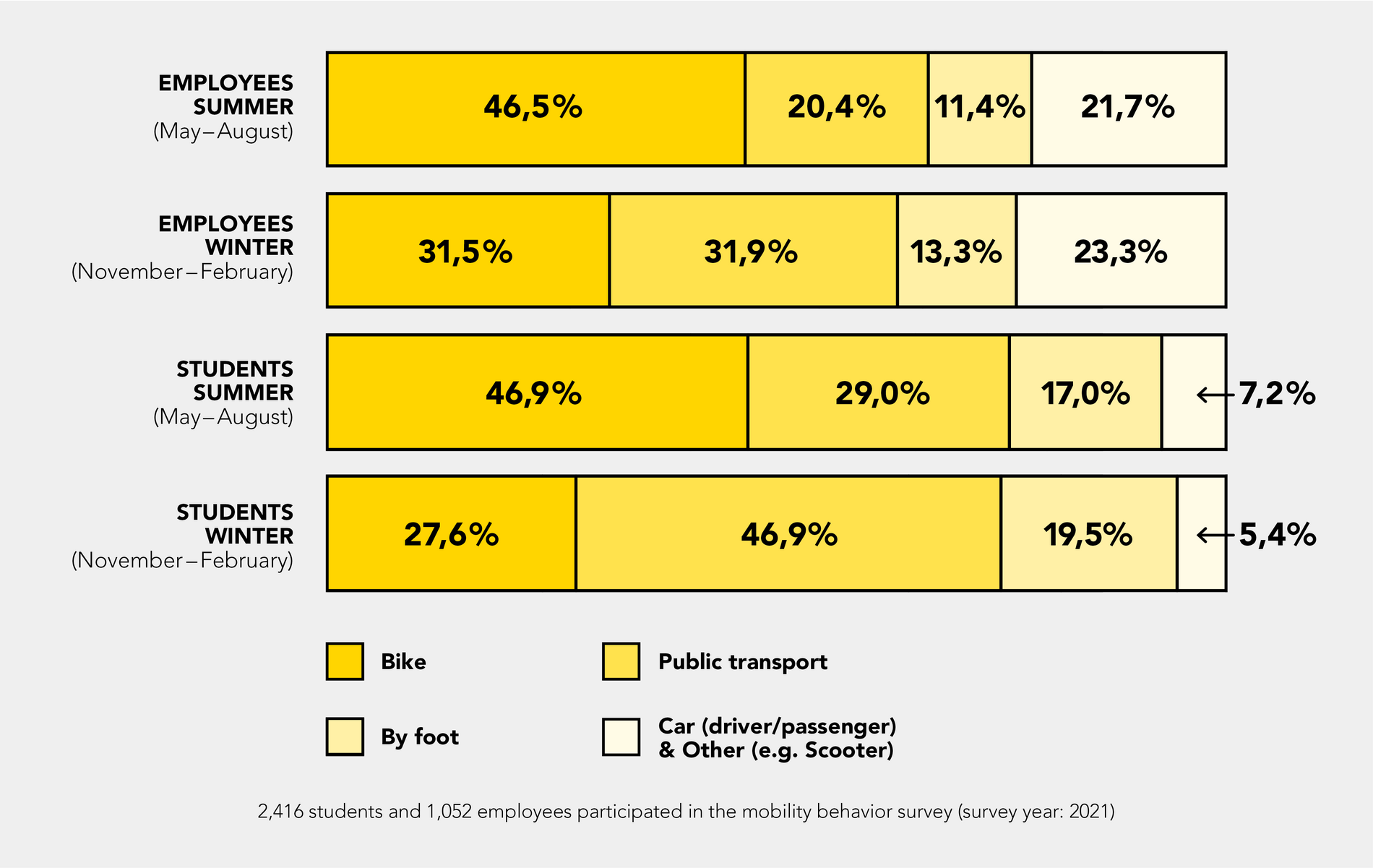The area of mobility includes commuting as well as stays abroad by staff and students, and also business trips by staff. In terms of international business travel, the University of Graz has set itself a reduction target of 50 percent by 2030 compared to the reference balance. Furthermore, the University of Graz promotes sustainable mobility to and from the university, especially in the areas of public transport, cycling and other forms that aim to achieve the most sustainable and climate-neutral mobility possible. Since March 2017, the University of Graz has been an officially certified bicycle-friendly company and was able to obtain the EU-wide "Cycle-Friendly Employer" certificate in the gold category.
Offers for staff
-
Uni-Graz bicycle: Three models are available for selection among the sponsored bicycles. Used bicycles can also be purchased through the bicycle exchange.
-
Promotion for high-quality e-bikes with a range of up to 150 km
-
Bicycle rental: During the opening hours of the porter's lodge, simply show your service card, sign it and you can start biking for an hourly rental!
-
Bicycle parking: The university is continuously expanding its bicycle parking facilities.
-
Ticket of the Holding Graz Linien: Promotion of the climate ticket
-
Park&Ride: Promotion of the Park&Ride annual combination ticket
-
Bahn-Business-Ticket: Use of the ÖBB Bahn-Business-Ticket for private and business trips
-
e-Filling stations: With a valid parking permit you can refuel your e-car for free.
Offers for students
-
Bicycle Parking: The university is continuously expanding its bicycle parking facilities.
More detailed info on the promotion of sustainable mobility at the University of Graz can be obtained from the Business Department at mobilitaet(at)uni-graz.at of the University of Graz.
The University of Graz travels by train
The University of Graz saved 12.4 tons of CO2 emissions in 2020 and 10.6 tons in 2021 by business travel with ÖBB.
The CO2 savings result from the relation of the distance traveled between train and car. Even from the first distance traveled by train instead of by car, large amounts of emissions can be saved. With a diesel or gasoline-powered car, an average of 147 grams of CO2 equivalents are emitted for one kilometer per person. If the same distance is covered by train, the CO2 burden is reduced to 13 grams of CO2 equivalents per person-kilometer.*
* Emissions data from the German Federal Environment Agency (Gemis).
This makes rail travel an important component of climate-friendly mobility. ÖBB CO2 Savings Certificate 2020 ÖBB CO2 Savings Certificate 2021
The mobility of employees and students
The distribution of the used means of transport (modal split) of the employees and students of the University of Graz was surveyed in 2021. In fact, the bicycle is the most used means of transport of the employees, but also of the students. Between the cold and the warm season, small fluctuations in the modal split can be seen, because with the beginning of autumn, the use of the bicycle decreases, but in favor of public transport.



